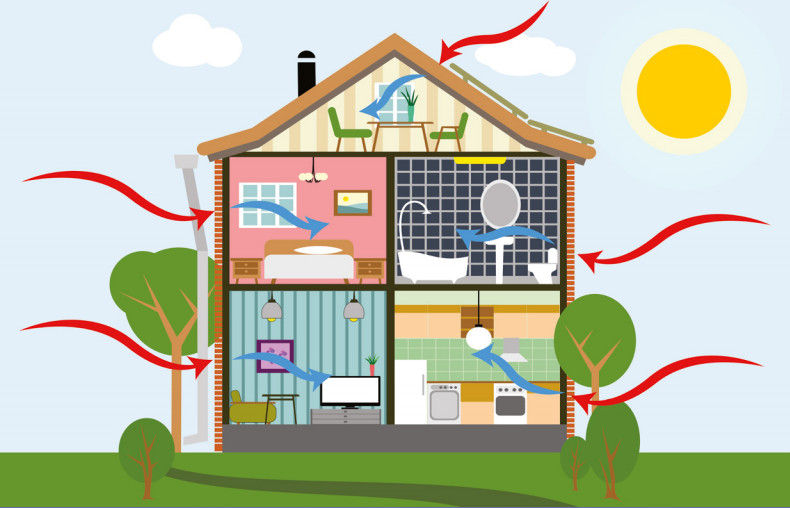The homebuilding industry is experiencing a transformative shift as groundbreaking technological advancements and a strong emphasis on energy efficiency redefine how homes are designed, built, and lived in. Highlighted in the Las Vegas Sun article "With focus on technology and energy efficiency, the future is now for homebuilders," these trends are paving the way for smarter, more sustainable living spaces that blend innovation and environmental responsibility. These developments are not just enhancing the way we live but are also shaping the broader future of the residential construction industry.
At the heart of this transformation lies the integration of smart technology into home design. Builders are leveraging cutting-edge innovations like automated control systems, real-time energy monitoring, and connected smart devices to create homes that are both technologically advanced and environmentally conscious. Features such as smart thermostats, voice-controlled assistants, and intelligent lighting systems have become indispensable components of modern homes. These technologies provide homeowners with an unprecedented level of control over their living environment. Adjusting energy use, optimizing home lighting, or managing security systems can all be accomplished through smartphone apps or voice commands. Beyond convenience, integrating such systems ensures greater energy efficiency, resulting in reduced energy consumption, lower utility bills, and a smaller carbon footprint. As technology continues to evolve, homes are becoming not just smarter, but uniquely tailored to the personal needs of their occupants.
Energy efficiency is the other critical pillar driving this industry evolution. The adoption of renewable energy sources, particularly solar power, is gaining momentum as both builders and homeowners seek sustainable alternatives. Solar panels, coupled with energy-efficient appliances and advanced insulation techniques, are now standard features in many new constructions. These innovations promote green living while significantly lowering energy bills—a win for both the environment and the homeowner's wallet. The growing demand for eco-conscious housing has pushed builders to prioritize sustainable designs. From net-zero energy homes to communities equipped with shared solar grids, the shift toward energy resilience and environmental responsibility has become a defining feature of modern homebuilding.
The benefits of this shift go beyond sustainability and cost savings. The advent of energy-efficient homes delivers long-term resilience in a rapidly fluctuating energy landscape. As energy prices remain unpredictable and global climate concerns intensify, homes designed with efficiency in mind offer security and stability. These homes are better equipped to withstand energy shortages, grid disruptions, and rising costs, ensuring families can thrive in a more uncertain future.
The article underscores the growing relevance of “smart homes” as emblematic of these exciting changes. Smart homes are defined by interconnected devices operating within an ecosystem powered by the Internet of Things (IoT). This ecosystem creates a seamless experience where devices communicate with one another and adapt to the homeowner’s preferences. For example, an IoT-enabled home can dim the lights, lower the room temperature, and lock the doors automatically when the owner leaves for work—all while optimizing energy consumption. As IoT technology matures, more advanced capabilities, including predictive maintenance and personalized energy usage insights, are expected to emerge, elevating convenience and sustainability.
What sets this transformation apart is the forward-thinking attitude of today’s homebuilders. Rather than simply reacting to consumer preferences, builders are proactively driving innovation. Through investments in research and development, pilot programs for greener materials, and partnerships with technology companies, the construction industry is challenging traditional methods to define what tomorrow’s homes look like. Builders are not just meeting today’s needs—they are anticipating future demands, setting higher standards for eco-friendly practices, and inspiring creativity throughout the sector.
The future of homebuilding, therefore, lies at the intersection of cutting-edge technology and environmental stewardship. By blending advancements in smart home technology with energy-efficient construction practices, the industry is creating living spaces that harmonize with both modern consumer expectations and the planet’s needs. Homeowners of the future can look forward to unparalleled comfort, convenience, and sustainability, all while taking meaningful steps toward a greener world.
The Las Vegas Sun article paints an inspiring vision of what lies ahead. Homes that leverage renewable energy and advanced technologies will not only minimize environmental impact but also become platforms for smarter, more connected living. From managing energy use through smartphone apps to living in solar-powered neighborhoods, the homes of tomorrow represent a perfect marriage of innovation and sustainability. The industry’s trajectory is clear: it is carving out a new era of housing where advanced technology and energy efficiency are not just luxuries but integral elements of everyday life. As we embrace this change, homebuilding stands as a beacon of progress, demonstrating how we can balance environmental responsibility with the pursuit of better living.
